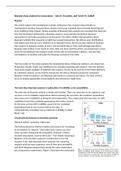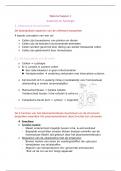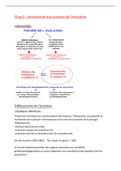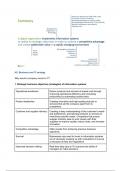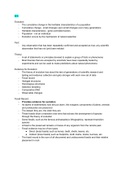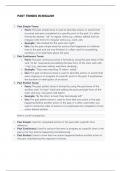Chapter 1 – The connected customer.
‘’Customers are connecting, forming networked communities that allow them to rapidly
share information and self-organize into powerful interest groups. Companies will have to be
more responsive to customer needs and demands if they want to survive’’.
The balance of power is shifting from companies to the networks that surround them. The
network (customers, partners and employees) will increasingly set the agenda, determine
the parameters and make the decisions about how they interact with companies.
By changing the way, we create, access and share information, social networks are changing
the power structure in society.
Customers are connecting and sharing information at a far faster rate than the companies
that serve them. There’s no question that when it comes to social networking, companies
lag behind their markets.
Peer-to-peer conversations subvert traditional marketing channels. Customers trust each
other more than they trust companies, who have a vested interest in making themselves
look good.
Customers don’t need to revolt in an active way. All that is required is for a new company to
come along and offer a better service. Connected customers will become aware of such
services far more easily than they have in the past, and share the information more quickly
too.
Every customer will be a connected customer. And if you want to win over connected
customers, you will need to become a connected company.
Chapter 2 – The service economy.
‘’Industrialization is a phase, and in developed nations that phase is ending. Growth in
developed economies will increasingly come from services’’.
Richard Florida points to a shift from an economy based on making things to one that is
increasingly powered by knowledge, creativity and ideas.
The material abundance we all enjoy was made possible by an industrial economy that
focused primarily on mass-producing material goods. The philosophy of mass production
was: If you could produce great volumes of a product at a low cost, the market for that
product would be virtually unlimited. But, nowadays markets get saturated. As markets
became saturated with material goods, producers found a new way to apply the principle of
mass production in mass marketing.
A problem is that the organizations that generate all the wealth are not designed to listen,
adapt and respond. They were designed to create a ceaseless one-way flow of material
goods and information. Everything about them was been optimized for this one-directional



